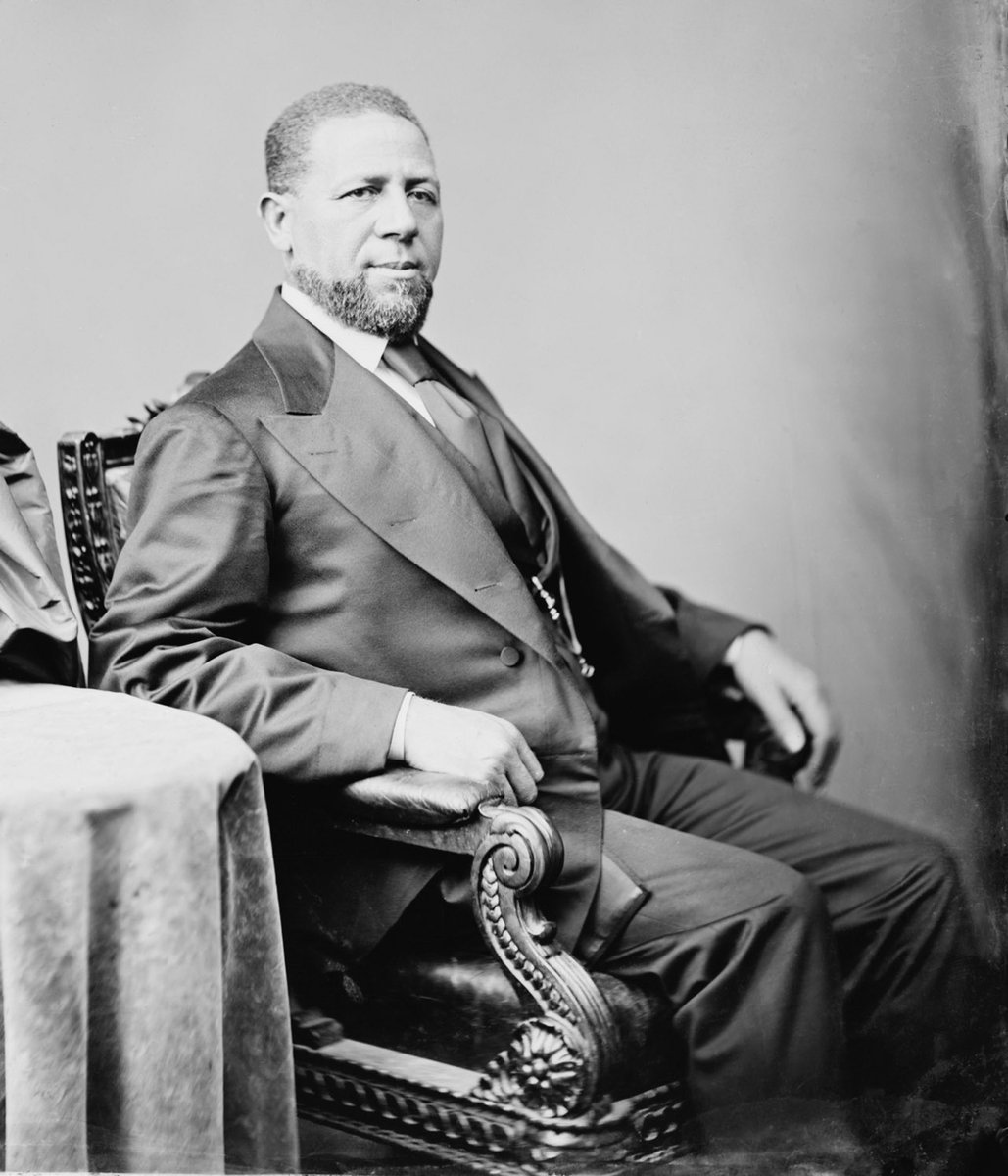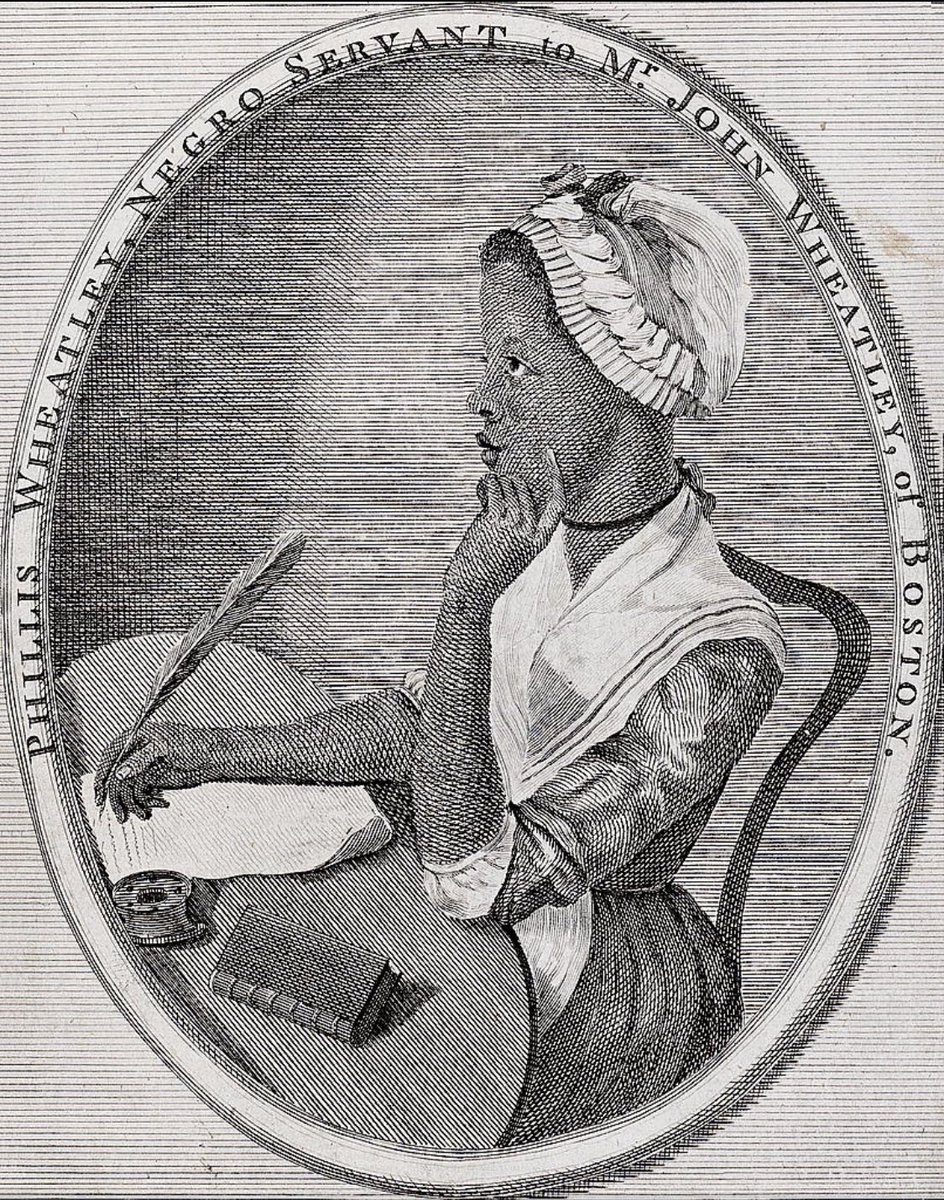
The First Black Senator &
The Unfulfilled Promise of Reconstruction
Hiram Revels was born free in Fayetteville, North Carolina, to free parents of African, Native and European with ancestry who had been free since before the American Revolution. 1/

The Unfulfilled Promise of Reconstruction
Hiram Revels was born free in Fayetteville, North Carolina, to free parents of African, Native and European with ancestry who had been free since before the American Revolution. 1/


In 1845 Revels was ordained as a minister in the AME Church; he served as a preacher & educator in the Midwest. His preaching was met with a great deal of opposition. He later recalled. "I was imprisoned in Missouri in 1854 for preaching the gospel to Negroes." 2/
In 1866, he was called as a permanent pastor at a church in Natchez, Mississippi, where he settled with his wife and five daughters. He became an elder in the Mississippi District of the Methodist Church, continued his ministerial work, and founded schools for black children. 3/
It was in Natchez where he was first identified as a potential politician. Back then, Blacks overwhelmingly identified with Republicans. Republicans were the party of abolition & Lincoln who had just wrote the Emancipation Proclamation three years earlier. 4/
Revels he delivered a prayer opening the legislative session of 1870 that made such a profound impression upon the members that they selected him to fill the short term in the U.S. Senate. *that’s some prayer* 5/
In 1870, Revels was elected by a vote of 81 to 15 in the Mississippi State Senate (back then senators were selected by the state legislature) to finish the term of one of the state's 2 seats in the US Senate, which had been left when Mississippi seceded. 6/
When Revels arrived in Washington, D.C., a dramatic showdown began. Southern Democrats in office opposed seating him in the Senate. For the two days of debate, the Senate galleries were packed with spectators at this historic event. Would the Senate actually recognize him? 7/
The Dems based their opposition on the 1857 Dred Scott Decision, which ruled that people of African ancestry were not & could not be citizens. They argued that no black man was a citizen before 14th A so Revels could not satisfy the requirement of the Senate. (1st birtherism) 8/
Imagine Revels suffering through the indignity of watching the legitimacy of his ability to be a senator actively debated on the Senate floor! 9/
The fundamental argument by Revels supporters was that the Civil War, & 14, 15 & 16th Amendments, had overturned Dred Scott so subordination of the black race was no longer part Law so it would be unconstitutional to bar Revels from serving. 10/
The battle for Black citizenship hadn’t ended with the conclusion of the Civil War, It had only begun.
His Party won & on February 25, 1870, Revels became the first African American to be seated in the U.S. Senate. Everyone in the galleries stood to see him sworn in. 11/
His Party won & on February 25, 1870, Revels became the first African American to be seated in the U.S. Senate. Everyone in the galleries stood to see him sworn in. 11/
In his 1st speech to the Senate on March 16, 1870, he argued for the reinstatement of black legislators of the Georgia Assembly, who had been illegally ousted by white Democratic Party. The surge of Black legislators elected after the Civil War were often forcibly removed. 12/
Revels fought for equality across racial lines, a war that would see more losses for another 100+ years. Revels accepted in 1871, after his term as U.S. Senator expired, appointment as the first president of Alcorn State University, a historically black college in MS. 13/
He remained active as a Methodist Episcopal minister and theology professor in Mississippi. Hiram Revels died on January 16, 1901, while attending a church conference in Aberdeen, Mississippi. 14/
He was one of a number of Black politicians who, for a fleeting moment, revealed a glimpse of the promise of what the USA could have been. But when the Compromise of 1877 removed federal troops & support for Blacks in the Southit all came crumbling down. 15/
The reign of terror of the KKK, lynching, and voter disenfranchisement would become the brutal reality in the South for the next 100+ years. In fact, the south would not have another black senator until 2012 when Republican Tim Scott, the current senator in South Carolina. 16/
There have been 12,415 individuals who have served in the Legislative Branch. Only 11 have been Black senators including the 3 currently serving (Scott, Cory Booker & Raphael Warnock). Including Kamala Harris who resigned to be VP 4 of 11 have served over the last year. 17/
Revels led with dignity and faithfulness but it would take his country over a century to catch up with him. #BlackHistoryMonth H/T Wikipedia & History.House.gov. 18/18
• • •
Missing some Tweet in this thread? You can try to
force a refresh







